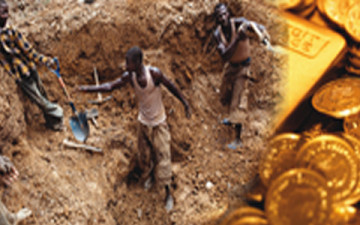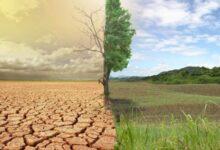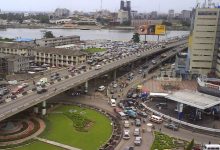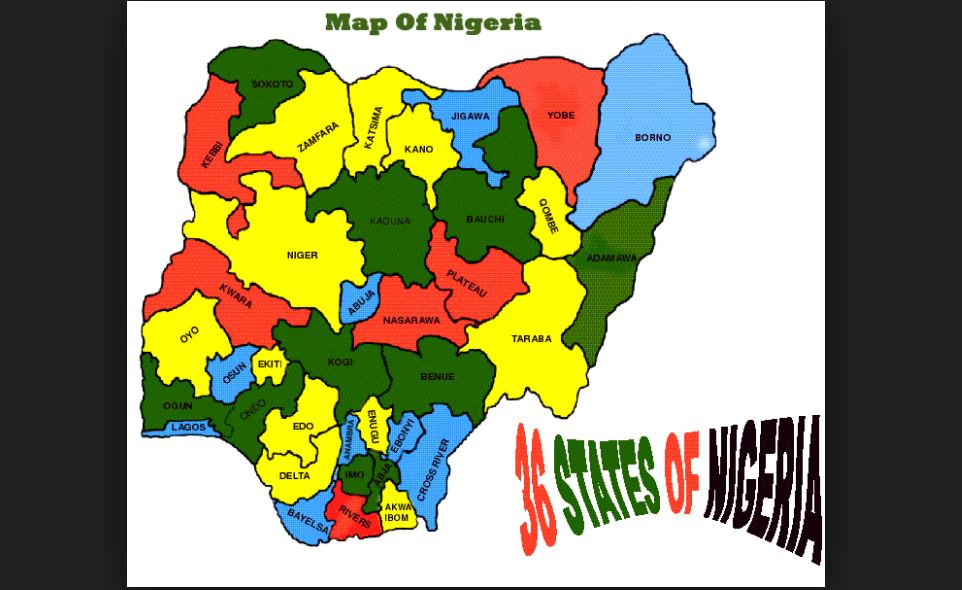
35 Notable Natural Resources in Nigeria and their Locations
35 Natural Resources in Nigeria and Their Locations. There are numerous rich natural resources in Nigeria, each with its own values. Let’s take a look at them here.
Although Nigeria mainly focuses on Crude oil as its major economic source, it still uses some other natural and mineral resources to improve its standard of living and the economy.
👉 Relocate to Canada Today!
Live, Study and Work in Canada. No Payment is Required! Hurry Now click here to Apply >> Immigrate to CanadaNatural resources and its classification
Natural resources are substances that occur naturally without the influence of man and can mostly be used for human consumption and economic growth.
They can either be used in their natural form or processed and manufactured into artificial products for consumption.
Examples of natural resources include water (seas, ocean, rivers, streams, and lakes), land, air, forests, sunlight, rocks, minerals, animals, fossil fuel among others.
Natural resources can are classified into three (3) categories
- Source of origin
- Stage of development
- Renewability
Based on their Sources of origin, natural resources are of two types:
- Biotic natural resources: These are organic or living materials that naturally exist in the biosphere. Examples include forest, animals, and fossil fuels.
- Abiotic natural resources: These are natural products in the biosphere that are non-living or non-organic. Examples include mineral, rocks, water, etc.
According to their stages of development, these resources can be classified into the following:
- Actual resources: These are natural resources that have already been surveyed, quantified and qualified. They are presently used.
- Potential resources: These resources are likely to be used in the future.
- Reserve resources: These are part of the actual natural resource which can be developed in the future for the sake of making a profit.
- Stock resources: Resources that have not been exploited and used as a result of lack of skills and technology. Examples are radioactive substances and rare gases.
Based on their Renewability, they can be classified into two types namely the:
- Renewable Natural Resources: Human consumption of these resources does not affect them. After use, they regenerate naturally. Water, wind, animals, natural vegetation, and solar energy are some examples.
- Non-renewable Natural Resources: These resources take a long time to regenerate. They could even exist in inadequate quantities. Examples are mineral, crude oil, rocks, etc.
List of all Natural Resources in Nigeria and Their Locations

The following are the natural resources in Nigeria and can be found across different regions and states in the country.
👉 Relocate to Canada Today!
Live, Study and Work in Canada. No Payment is Required! Hurry Now click here to Apply >> Immigrate to CanadaWhile some resources in Nigeria are properly used to boost its economy, others are either underused or yet to be exploited.
Industries process most of the natural and mineral resources into finished products for human consumption.
Here is a list of all the natural resources in Nigeria and their locations.
1. Crude Oil
Popularly known as one of the natural resources in Nigeria, Crude oil is a fossil fuel discovered in the country in 1956.
The unrefined petroleum mined underground forms as a result of pressurization and decomposition from plants and small animals’ remnants.
Nigeria is the world’s fourth richest in crude oil deposit and the first in Africa.
Locations: Crude oil mineral deposits are found majorly in the Niger-Delta regions comprising of Abia, Akwa Ibom, Anambra, Bayelsa, Cross River, Delta, Imo, Ondo, and Rivers State.
Read more on: Top 10 oil producing states in Nigeria
2. Gold
Deposits of gold are located in the Northern part of Nigeria. Its production started in the year 1913 and climaxed in the 1930s. The gold production, however, declined during and after the Second World War.
Locations: This natural resource is prominently found in Iperindo in Osun State, Malele, Gurmana, Okolom-Dogondaji, Anka, Bin Yauri, Maru, and Tsohon Birnin Gwari-Kwaga.
Other states where small traces of Gold can be found are Abuja, Abia, Bauchi, Cross River, Edo, Kaduna, Kebbi, Kogi, Niger, Oyo, Osun, Sokoto, and Zamfara State.
3. Silver
Nigeria is one of the countries in Africa that has deposits of silver. Just like some other mineral resources, silver is sparsely deposited in the country and can be found in the northern part of Nigeria.
Locations: Taraba, and Kano, State. Ebonyi state has traces of Silver.
4. Coal
Another fossil fuel, coal is among the non-renewable natural resources in Nigeria. The country can make use of coal as an alternative source for generating electricity.
Manufacturing industries use coal as a liquid fuel for cement and steel production. This naturally occurring substance is a combustible brownish-black or black sedimentary rock which occurs in rock strata in layers.
Locations: Enugu, Delta, Benue, Plateau, Kwara, Abia, Kogi, Imo, Ondo, Adamawa, Edo, Bauchi, and Anambra States.
See Also: Top 10 Highest Oil Producing Countries in Africa
5. Granite
Granite is abundantly deposited in Nigeria and Africa at large. The natural stone is crushed and used in the construction of roads, buildings, and bridges.
Location: Granite can be found in every state but are seen in bigger quantities in Ekiti, Cross River State and Abuja (FCT).
6. Iron-ore
Nigeria has huge iron ore deposits which are usually found in sedimentary rocks. It is believed that Itakpe (Kogi State) has the purest iron ore deposits.
Locations: Other states where Iron ore deposits are found include Anambra, Abia, Benue, Bauchi, Nasarawa, Plateau, and Kwara States.
7. Barite
Nigeria is hugely blessed with a large number of Barite deposits. Barite or Baryte (BaSO4) mineral resources are made up of Barium sulfate and come in a wide range of crystal forms and colors.
Locations: Large numbers of quality Barite are found in Cross River State in areas like Yala, Ikom, Obubra, Obanliku, Yakurr, and Biase.
Other states are Benue and Plateau.
See Also: Notable Natural Resources In Ogbomoso, Oyo State
8. Bitumen
Bitumen is one of the rich and popular natural resources in Nigeria as it contains oil accounting over 13 billion barrels.
First discovered in the 1900s, Bitumen greatly contributes to the Nigerian economy. This hydrocarbon can either be found in deposits (oil sands) or acquired as a residue in the crude oil distillation process
Locations: Edo, Ogun, Ondo, and Lagos State.
9. Gemstones
Gemstones are one of the most wanted precious and semi-precious stones.
Fortunately, these natural resources are in abundance and scattered across several states in Nigeria. Some are found in larger quantities, while others in little quantities.
Amethyst, aquamarine, diamond, emerald, garnet, ruby, sapphire, topaz, Kyanite, tourmaline, zircon, turquoise, labradorite, benitoite, and ammolite are some of the many available gemstones in Nigeria.
Locations: Paraiba tourmalines are richly found in Oyo state, other states include Bauchi, Benue, Ogun, Ondo, Kaduna, Kano, Plateau, and Nasarawa States.
Tourmaline deposits are located in Kaduna, Osun, and Nasarawa States.
10. Clay
Clay is one of the most popular natural resources in Nigeria and is the oldest building material on the planet. Today, it is used to manufacture pottery, ceramics, wall and floor tiles, fire bricks, among others.
Locations: Clay is deposited in bigger quantities in Nigeria states such as Abuja (FCT) Anambra, Akwa Ibom, State, Benue, Bauchi, Borno, Cross River, Lagos, Edo, Delta, Ogun, Oyo, Ondo, Sokoto, and Nasarawa States.
See Also: Notable Natural Resources In Okitpupa, Ondo state
11. Feldspar
Feldspar is one of the non-metallic natural mineral resources that are formed in rocks deposits.
Locations: Ajaokuta (Kogi), Ondo, Ogun, and Abia States.
12. Copper Ore
Copper ore is also one of the metallic natural resources that are richly deposited in Nigeria. Although Copper ore large scale mining and exportation process are still neglected by the government, locals mine and export these metallic minerals.
Locations: Abia, Bauchi, Kano, Gombe, Plateau, Nasarawa, and Zamfara States.
13. Zinc
In West Africa, Nigeria is one of the countries that have large quantity of Zinc deposits across several states. After Iron, Aluminum, and Copper, Zinc is the fourth (4th) most widely utilized metallic substance.
Locations: Abuja (FCT), Anambra, Cross Rivers, Enugu, Ebonyi, Imo, Niger, Kano, Plateau, Taraba, and Zamfara States.
14. Dolomite
Dolomite deposits are one of the Nigeria mineral resources, similar to Limestone in terms of exposure to pressure and heat. It is formed from the sedimentary rock.
Location: Abuja (FCT), Edo (Akoko and Ikpeshi), Kwara, Kogi, Oyo, Nasarawa, and Yobe.
15. Lead Ore
Lead ore deposits are metallic natural resources abundant in Nigeria.
Locations: Anambra, Akwa-Ibom, Bayelsa, Imo, Benue, Ebonyi, Enugu, Abuja (FCT), Niger, Cross River, Plateau, Taraba, and Zamfara.
See Also: 2 Notable Natural Resources in Ogbomoso, Oyo State
16. Limestone
Limestone is a sedimentary rock and non-renewable natural resources that is greatly used by local, as well as international firms in Nigeria.
Locations: Abia, Anambra, Akwa Ibom, Bayelsa, Borno, Bauchi, Benue, Enugu, Edo, Ogun, Imo, Ondo, and Sokoto States.
17. Phosphate
Phosphate mineral deposits are found in metamorphic and igneous rocks. Due to the presence of these rocks and phosphate beds in Nigeria, Phosphate is largely deposited in the country.
Locations: Abia, Sokoto, Edo, Imo, Ogun, and Anambra States.
18. Galena
Galena doesn’t occur on its own as it is mostly found mixed with other minerals resources such as sphalerite, calcite, and fluorite. Galena is a very essential ore widely used in the electrical and electronic industries.
Locations: Galena is deposited largely in Ebonyi State (Ishiagu) with a reserve of approximately 15 million tonnes. Other states include Nasarawa, Ogun, Ekiti, Kwara, Kogi, and Taraba.
19. Gypsum
Gypsum is a soft, white-greyish (pure form) mineral resource that can also come in a variety of colors- reddish-brown, pink, brown, blue, tan, yellow (impure form).
It is found in a large bed of sedimentary rocks. The existence of Gypsum was evaluated and reported in 1921.
Locations: Anambra, Adamawa, Bayelsa Bauchi, Borno, Benue, Delta, Edo, Imo, Gombe, Ondo, Kogi, and Sokoto States.
20. Wolframite
Wolframite is not a popular mineral, compared to the other natural resources in Nigeria. The mineral deposit is the main ore of Tungsten, as a result, it is highly valued.
It has a high melting temperature and dense.
Locations: Wolframite is located in the northern regions of Nigeria such as Bauchi, Kaduna, Kano, Niger, and Plateau states.
See Also: Top 10 Popular Natural Resources in Abia State and their Economic Values
21. Kaolin
Kaolin is one of the natural resources in Nigeria that is found in large commercial amount. Also known as China clay, Kaolin is whitish and has a soft powdery texture.
Kaolinite is a major component of Kaolin.
Locations: Abia, Adamawa, Delta, Borno, Ekiti, Katsina, Kaduna, Kogi, Oyo, Ondo, Ogun, and Plateau States.
22. Salt
Salt is a very common natural deposit in Nigeria. It comes in different types such as table salt (the commonest), sea salt, red salt, black salt, smoked salt, grey salt Persian blue salt, Himalayan pink salt, and many more.
Locations: Salt is largely deposited in Ebonyi State, thus its slogan– The Salt of the Nation.
Others locations include Akwa Ibom, Abia, Benue, Anambra Cross River, Katsina, Imo, and Sokoto State.
23. Magnesium
Magnesium is not largely deposited in Nigeria, unlike some other African nations. It exists in nature alongside other mineral resources. Magnesium is the world’s eighth most abundant natural element.
Locations: Adamawa and Kebbi States.
24. Quartzite
Quartzite is hard metamorphic rock with an appearance that is non-layered. Its color in the pure form is grey or white, but it can also come in other colors which depend on the kind of existing impurities.
Locations: Ekiti, Kwara, Kogi, Oyo, and Taraba States.
25. Tin Ore
Also known as Cassiterite, Tin Ore deposits were first discovered in Nigeria by Sir William Wallace in 1884.
Locations: Tin Ore mineral deposits are produced in Abuja, Bauchi, and Plateau States.
26. Fluorite
Unlike many other Natural resources that are widely abundant in Nigeria, Fluorite is among the ones that are only deposited in traces. It is crystal colorless in its pure form. However, it can be seen in several colors due to the presence of impurities.
Location: Taraba State
See Also: 10 Natural Resources Found in Yakurr Region of Cross River State
27. Manganese
Nigeria is blessed with a large number of natural mineral resources, even though many are untapped and less used.
Various local and global companies venture into the mining and exportation of Manganese to other countries.
Locations: Adamawa, Bauchi, Borno, Benue, Katsina, Cross River, Kebbi, Kaduna, Nasarawa, and Plateau.
28. Tar sands
Tar sands are also known as oil sands. They are black heavy sticky oil that develops from the mixture of sand, clay, bitumen, and water.
Tar sands are highly valuable in the country due to the oil content present in the Bitumen.
Locations: Predominantly deposited in the Mid-Western part of Nigeria, Eastern Dahomey Basin (Benin) and other areas of Edo State.
Other states include Ondo and Abia States.
29. Columbite
Columbite is found together with Tantalite in pegmatites and granite deposits.
This mineral deposit is an ore of tantalum and niobium used in the formations of alloys. It is useful in the gas turbine, aerospace, and nuclear engineering.
Locations: Abuja, Kano, Kwara, Kogi, Plateau, and Nasarawa States.
30. Diatomite
Diatoms skeletons and single-celled organisms (located in salt or fresh water) made of silica skeleton are the major components of Diatomite.
Locations: Abuja, Kogi, Oyo, and Nasarawa States.
31. Titanium
The deposits of Titanium are only available in a small quantity, unlike other mineral and natural resources in Nigeria.
Titanium is strong but lighter than steel with a melting temperature that is very high.
Locations: Ekiti State.
See Also: 10 Natural Resources Found in Yakurr Region of Cross River State
32. Marble
Marble is a metamorphic rock and has a non-layered appearance, just like Quartzite.
Recrystallized carbonate minerals such as calcite (CaCO3)/ dolomite, iron oxides, pyrite, graphite, clay minerals, micas, and quartz generally make up this mineral deposit.
Both local and international construction industries use Marble.
Locations: Marble is majorly located in Abuja (FCT), Benue, Oyo, Katsina, Kogi, Kwara, River, and Plateau States.
33. Uranium
Uranium deposits are natural resources in Nigeria. The country only uses the deposits in lesser quantity than expected.
Uranium production can help to boost the economy of Nigeria.
Locations: Akwa Ibom, Adamawa, Bayelsa, Bauchi, Cross River, Kano, Plateau, and Taraba States.
34. Talc
Talc is a metamorphic mineral mostly found locked deep within metamorphic rocks.
The soft mineral deposit has a greasy feel and comes in white, grey or pale green colors. Magnesium, oxygen, and silicon elements are the major components of Talc.
Locations: Ekiti, Kaduna, Kogi, Osun, Oyo, Niger, Nasarawa, and Yobe States
35. Silica
Silica also called Silicon dioxide or silica sand is one of the natural resources in Nigeria. It occurs in silicon and oxygen compound (SiO2).
Locations: Delta, Jigawa, Kano, Lagos, and Ondo States.





